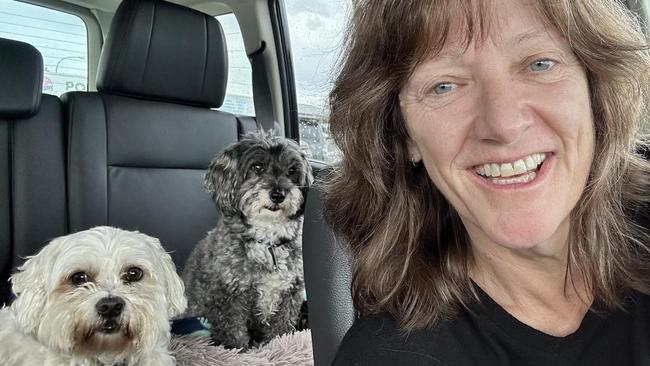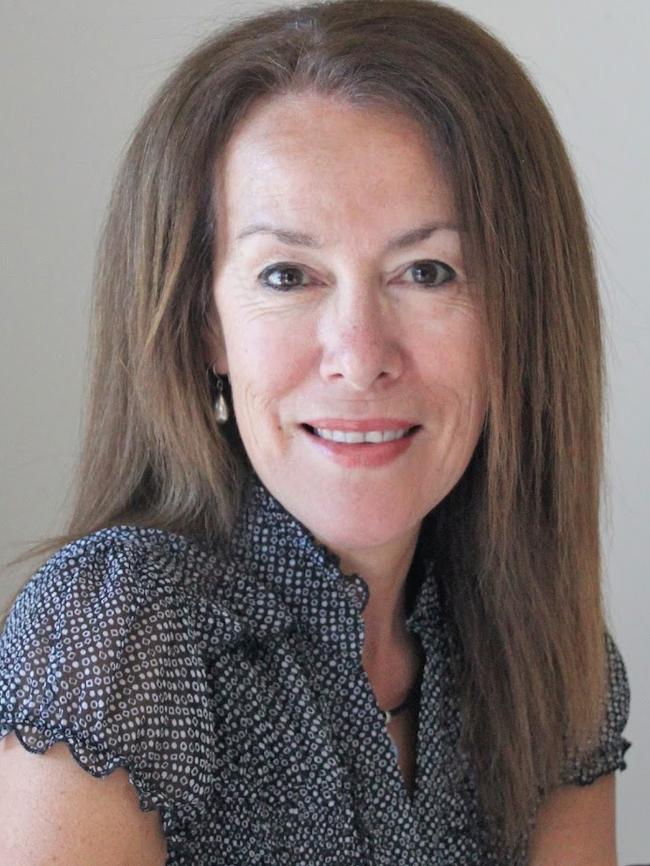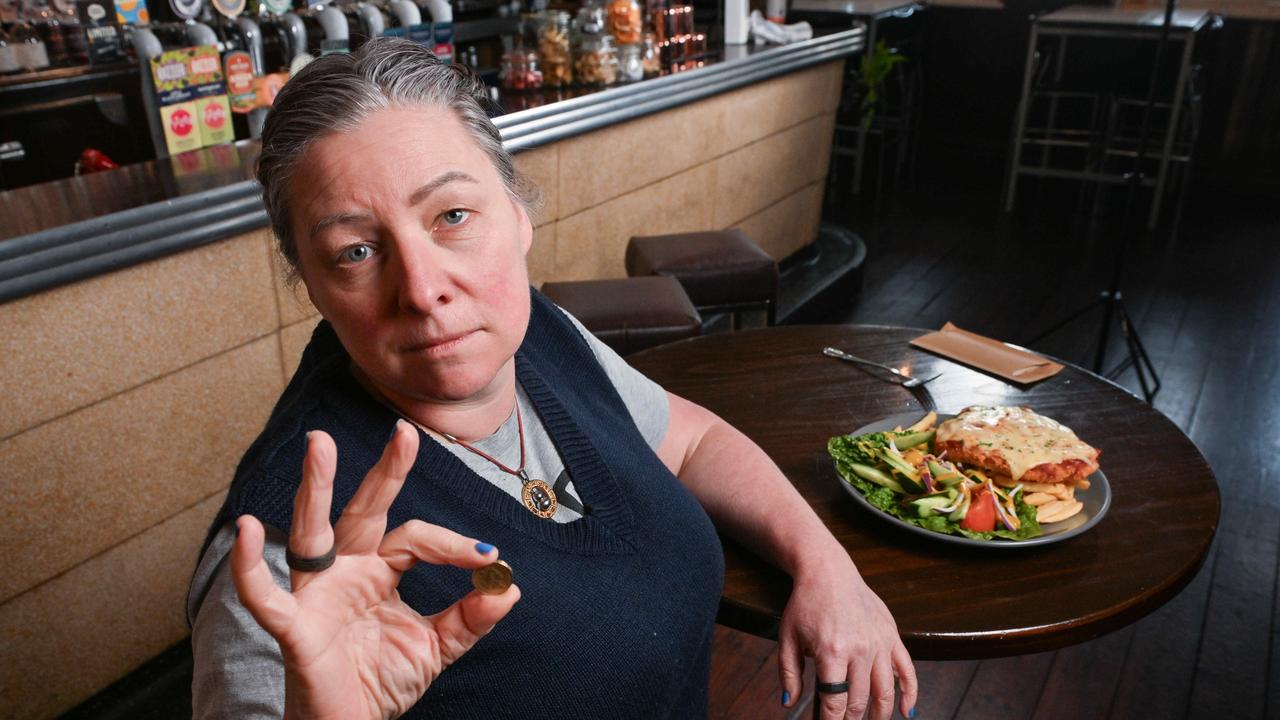Inside the rise of the Dull Women’s Club and why no one has hobbies anymore
Forget running meets, quiz nights and book clubs, doing nothing is now an acceptable pastime, and these women are embracing it with flair.

Lifestyle
Don't miss out on the headlines from Lifestyle. Followed categories will be added to My News.
“I’m usually in bed by 6pm,” one woman nobly states in bold red and white writing.
“My favourite outfit is a long sleeve grey T-shirt with a short sleeve one layered over it, also grey,” says another.
“I hate people,” bluntly shares one more.
Welcome to the Dull Women’s Club — the couch-perched social media gang proudly rejecting hobbies in favour of a blissfully boring life.
They’ve found solidarity in a global 208.2k-strong Facebook group where they share their shoe size, odd collection habits and photos of ripening bananas along with other banalities.
They each have one thing in common: they’re happy to spend their days doing, well, nothing.
Adelaide mum-of-three and dog trainer Jacqui Triggs, 59, joined the group this week.
She’s in the lead-up to her retirement, during which she’ll spend her days in Torrensville with husband Steve and dogs Joey and Archie.
“I don’t have an abundance of hobbies, but I wouldn’t say I’m guilt free about it,” Ms Triggs told The Advertiser.

“I guess one of the reasons the group appealed to me was that maybe it could help me make peace with it … what I like about (the women in the group) is that they don’t seem to always have to be the best at the things they do. So maybe I can have a hobby that I’m crap at and still enjoy it,” she joked.
Ms Triggs has found particular comfort in the sharp cynicism of the group.
“I find (cynicism) funny and I think people don’t always get that about me. I see some fellow cynics in the group and it makes me quietly happy,” she said, adding: “Social media is so full of overachievers.
“Don’t get me wrong, I admire a super woman, but I feel there’s too much pressure on them and the rest of us to be that, or that we should aspire to be that.”

Semaphore grandmother Gail Rogers, 64, happened upon the group last month and was similarly struck by how “fantastic” it was to “find people as boring as me”.
“I consider myself a dull woman because I work, garden, read books and I am in my jammies by five,” the homewares and clothing store owner said.
“I think that concerts at night should be at lunchtime so that I can go and still be home by five … I visit my daughter and grandkids and that is pretty much it,” she shared of her life outside of work.
Ms Rogers, who runs Semaphore shop Xanadu with a friend, hasn’t changed her view on how she lives her life since joining the community, given she accepted her penchant for the delightfully mundane “long ago”.
“I honestly think that it is possibly the media and businesses (advertising) that push us to do things like join clubs and go on cruises.
“They want us to be interesting and spend money on those hobbies and activities (but) these days you can’t talk me into anything, I am too old and stubborn,” she said.

The popularity of the club — which started as the feminine counterpart of the 1.1 million-member Dull Men’s Club — speaks to a wider trend of self care at the forefront of personal priorities in 2024, according to experts.
Clinical psychologist and global mental health researcher Ehab Youssef claims the emergence of such groups reflects “a societal shift in attitudes towards productivity, leisure, and personal fulfilment”.
Mr Youssef pinpointed burnout culture as a key driver towards people embracing rest and wanting to share it.
“Burnout culture emphasises the importance of self care and prioritising mental health to mitigate the negative effects of chronic stress and overwork.
“(The group) suggests a rejection of the societal obsession with productivity and the relentless pursuit of hobbies or interests as a measure of personal worth.
“Instead, individuals are reclaiming the right to embrace leisure, rest, and simplicity without feeling inadequate or judged.”

When it comes to women in particular forgoing hobbies, there’s an added layer of significance given deeply entrenched gender stereotypes see women historically expected to prioritise domestic responsibilities over leisure activities.
Proving said stereotype has been alive and well in recent years. In 2022, Jack Denmo, host of the Good Bro Bad Bro podcast, went viral for saying he did not know any women who “actually have hobbies”.
The bold assertion sparked internet outrage, but now, women are owning the hobby-less life in a fierce rebuttal of; “So what?”


Local counsellor and therapist Karen March, owner of SageLife Online Counselling, said the Dull Women’s Club “pushes back against the curated lives of women so often portrayed on social media” and fosters a powerful sense of connection.
“It gives women permission to see and accept things how they are, by dropping the pretence, and learning to appreciate and savour what they have.
“It values the small pleasures in life … sometimes humorous, sometimes touching, sometimes quirky, but always authentic in telling it how it is. It’s real.”

Ms March mused that celebrating “the ordinariness” of life could be just as affirming and liberating for women as any hobby.
“In my personal and professional experience, I have encountered both men and women who say they don’t have any hobbies,” Ms March explained.
“But as the conversation deepens, it’s often been more the case that they do have interests but have not had the time, occasion, motivation, or perhaps confidence to explore them.
“I think the ‘dull women’s club’ promotes an acceptance of those women who may not be looking to pursue any hobbies.
“There is a culture of not only acceptance of the variety of ways women may wish to spend their time but there is also no preconceived expectation on how they should do that and what it should look like.”

So are there any mental health dangers of not pursuing new interests?
“Rejecting hobbies outright may have a downside in certain instances” Ms March said.
“Hobbies have been known to be extremely therapeutic for people struggling with their mental health, people who feel isolated and lonely, or for people who struggle with self-esteem, self-confidence and self-efficacy.”
Ms March added, however, that embracing dullness could be used as a wellness tool in itself.
“It could encourage the practice of mindfulness and gratitude; taking the time to notice, appreciating the small things that we often miss because we are distracted with obligations, stress, and overload.
“It could also provide us with the opportunity to process our feelings and experiences, or to make decisions that require time to consider.”




